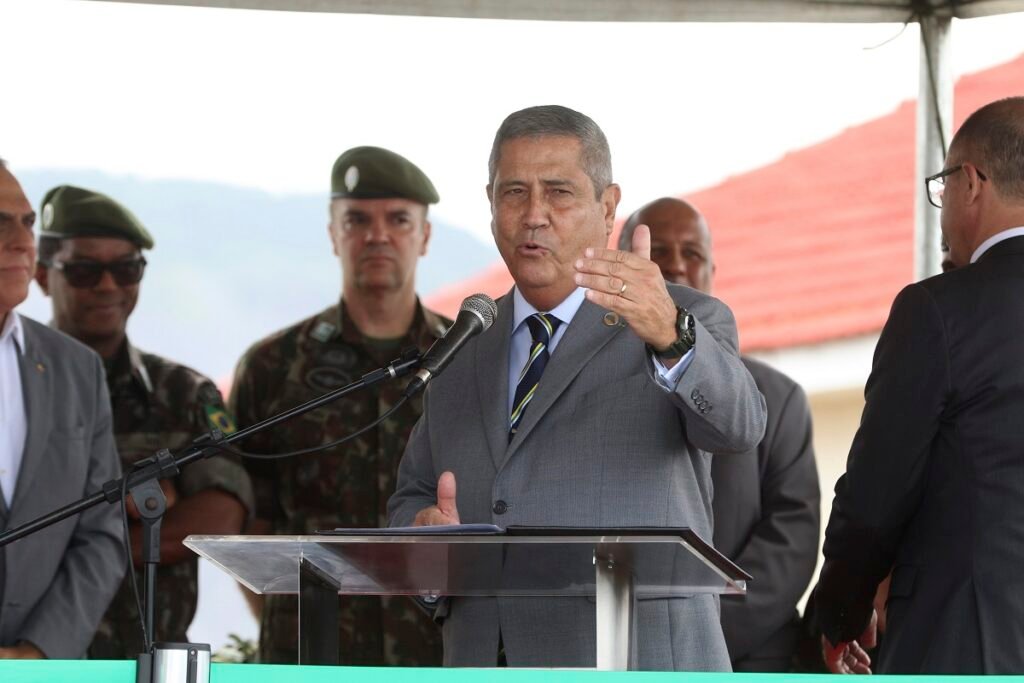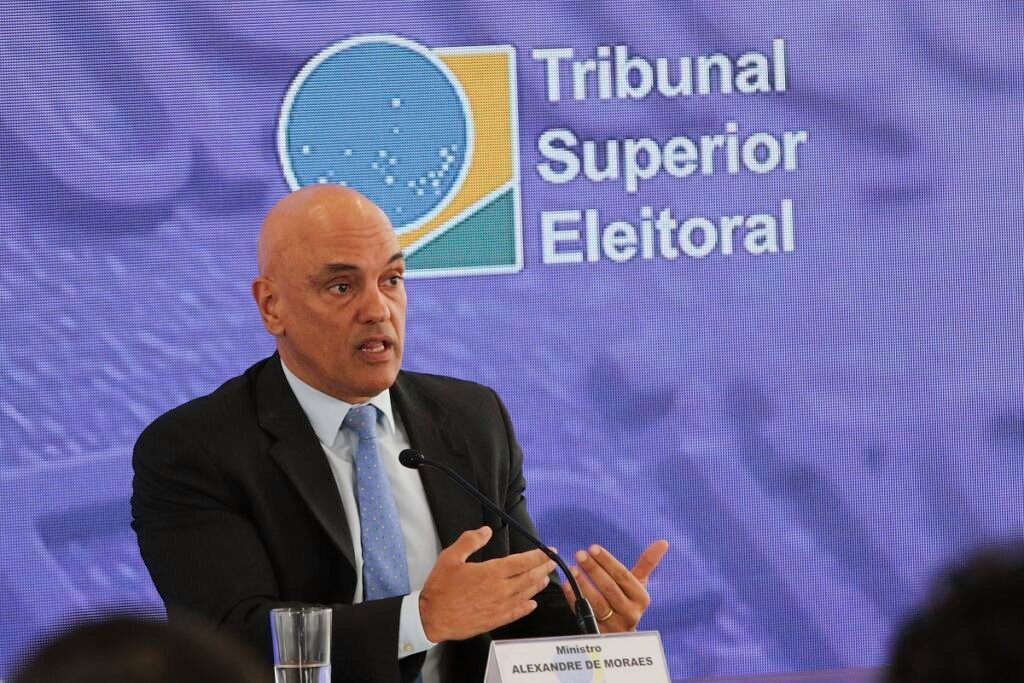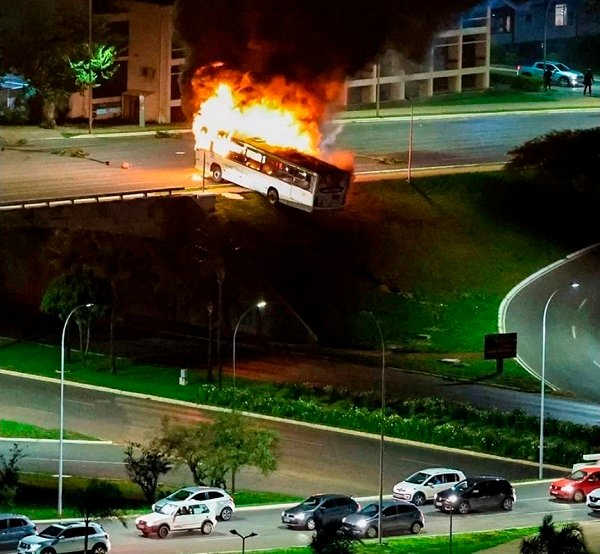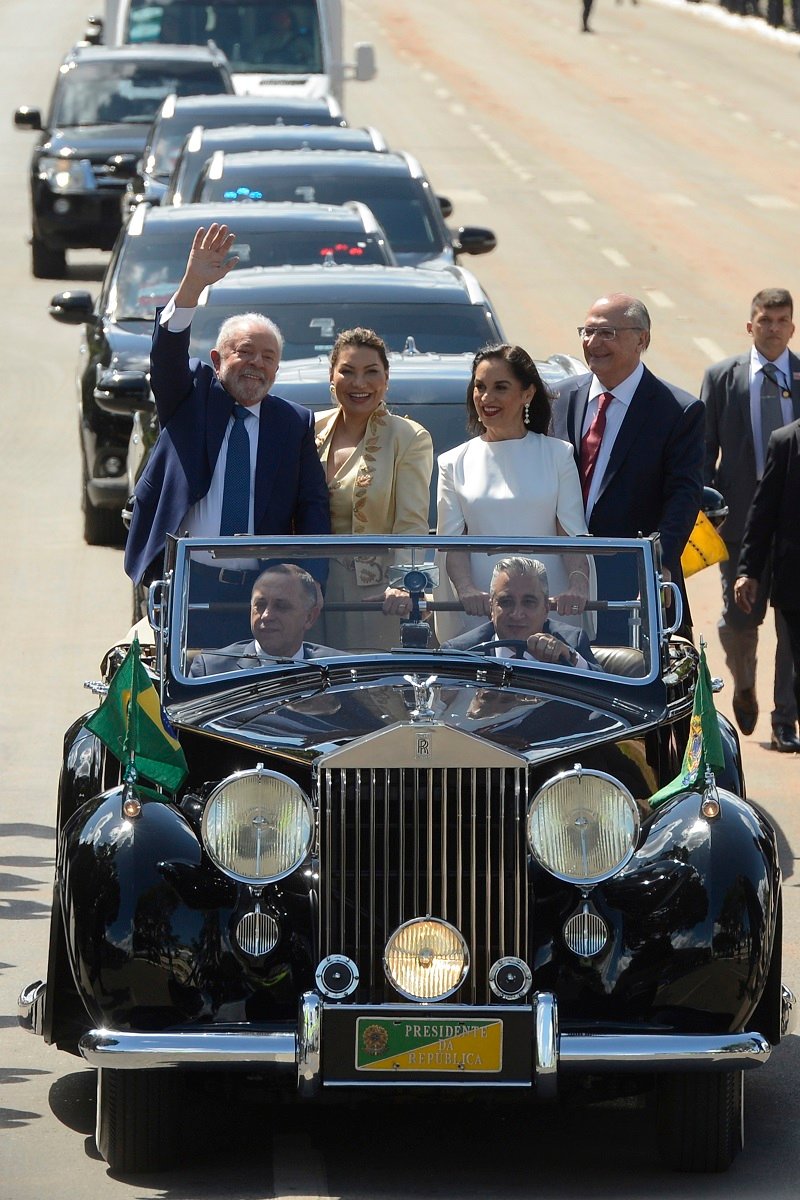SUMMARY
Brazil has faced a series of coordinated attempts to destabilize its democratic institutions. Key incidents include Operation Green-Yellow Dagger, which revealed plans for assassinations and sabotage by specialized groups aiming to overturn the 2022 election results, and the 2022 World Cup operation, which involved monitoring Supreme Court Minister Alexandre de Moraes. On 8 January 2023, radical supporters of Jair Bolsonaro stormed Brazil’s Three Powers Square, seeking to destabilize the newly elected government of Luiz Inácio Lula da Silva. Investigations confirmed these acts were not spontaneous but part of a larger plan involving disinformation, military coordination, and logistical efforts.
Further violence occurred on 13 November 2024, when a terrorist attack near the Supreme Federal Court caused panic and highlighted ongoing efforts to challenge democratic stability.
These incidents reflect a broader, organized campaign to disrupt Brazil’s political system through calculated actions targeting key institutions.
This Content Is Only For Subscribers
To unlock this content, subscribe to INTERLIRA Reports.
Operation Green-Yellow Dagger
On 14 December, the Federal Police arrested General Walter Souza Braga Netto, a central figure in an investigation into an attempted coup d’état. Braga Netto, a four-star general, former Defense Minister, and former Chief of Staff, was Jair Bolsonaro’s running mate in the 2022 presidential election. This arrest marked a major escalation in the investigation into efforts to undermine Brazil’s democracy following Bolsonaro’s defeat to Luiz Inácio Lula da Silva (PT).
In November, the Federal Police indicted Braga Netto, Bolsonaro, and other former government figures for crimes including conspiracy to stage a coup. Investigators uncovered a highly organized effort to keep Bolsonaro in power after the 2022 presidential election, revealing a disturbing plot with broad implications for Brazil’s democratic institutions. Dubbed Operation Green-Yellow Dagger, the investigation highlighted plans to destabilize institutions, sabotage infrastructure, and eliminate political opposition to Jair Bolsonaro.

The conspirators’ ultimate objective was to overturn the 2022 election results and prevent President Lula from executing his mandate. To achieve this, they organized into seven specialized groups or units, each with distinct roles. The Disinformation Group orchestrated campaigns to undermine public trust in the electoral system through fake news and misinformation. The Incitement Group focused on rallying military support for the coup, while the Legal Group devised strategies to revert election results before the judiciary power. The Operational Support Group managed logistics, including securing resources and coordinating actions, while the Parallel Intelligence Unit gathered intelligence on political opponents and strategic targets. Most alarmingly, the Coercive Measures Unit planned violent actions, including arrests and assassinations of key figures.
Retired General Mario Fernandes, a Bolsonaro ally and former executive secretary of the General Secretariat of the Presidency, played a leading role in the most egregious aspects of the plan. Arrested in November, Fernandes was accused of devising assassination plots targeting political and judicial leaders. On 12 November 2022, Fernandes presented these plans to Braga Netto in a meeting at the general’s residence, just three days before the proposed attacks would take place. Among the intended targets were President Lula, Vice President Geraldo Alckmin, and Supreme Court Minister Alexandre de Moraes. Moraes, a staunch defender of democracy and a prominent figure in investigations into anti-democratic acts, was seen as a critical obstacle to the conspirators’ goals. Intercepted communications and seized documents revealed secret meetings between retired military officers, influential businessmen, and Bolsonaro’s close advisors. These meetings outlined strategies to sabotage critical infrastructure—such as power grids and communication networks—and to fund violent demonstrations designed to create chaos and justify a coup. The conspirators believed that fostering nationwide instability would pave the way for military intervention and the establishment of an authoritarian regime.
Historical Context: From Dilma Rousseff’s Impeachment to Today’s Political Instability
The roots of Brazil’s current political instability can be traced back to the impeachment of President Dilma Rousseff in 2016. Accused of fiscal irregularities, Rousseff’s removal from office marked a turning point in Brazilian politics, exacerbating divisions and fueling widespread distrust in political institutions. While some viewed her impeachment as a necessary accountability measure, others condemned it as a politically motivated “coup,” deepening polarization across the country.
Rousseff’s successor, Michel Temer, faced his own controversies, including allegations of corruption and declining public approval, which only worsened the nation’s institutional credibility. Amid growing dissatisfaction, Jair Bolsonaro rose to prominence during the 2018 presidential elections, presenting himself as an anti-establishment figure promising to combat corruption and restore order. His rhetoric, however, often targeted democratic institutions, including the judiciary and electoral system, sowing doubts about their integrity. Bolsonaro’s presidency was marked by continuous clashes with the Supreme Federal Court (STF) and the Superior Electoral Court (TSE), particularly over the reliability of Brazil’s electronic voting system. His claims laid the groundwork for the events detailed in this text. The meeting with ambassadors in July 2022 and the subsequent disinformation campaigns were clear attempts to erode confidence in the electoral process, setting the stage for contesting his defeat in the 2022 elections.
Meeting with Ambassadors
On 18 July 2022, Jair Bolsonaro convened a controversial meeting with ambassadors at the Palácio da Alvorada, the official residence of the president of Brazil. During this event, which was broadcast live, Bolsonaro reiterated widely debunked claims about vulnerabilities in Brazil’s electoral system.
Bolsonaro’s rhetoric focused on criticizing the Superior Electoral Court (TSE) and the Supreme Federal Court (STF), accusing them of interfering with the electoral process. He also questioned the security of Brazil’s electronic voting machines. The event drew widespread condemnation from both national and international authorities and was widely viewed as a preemptive attempt to delegitimize the 2022 election results and foster an environment of mistrust.
Electoral security experts and the TSE promptly refuted Bolsonaro’s claims, reaffirming the integrity of Brazil’s electronic voting system. However, Bolsonaro’s repeated attacks raised concerns within the international community about his commitment to democratic principles. This meeting was part of a calculated effort to erode trust in the electoral process and lay the groundwork for contesting the results, further polarizing public opinion.
2022 World Cup
On 15 December 2022, a clandestine operation known as 2022 World Cup exposed another layer of the coup plan orchestrated by Bolsonaro’s allies. This operation, involving six military personnel, focused on the abduction of Supreme Court Minister Alexandre de Moraes. To coordinate their actions and evade detection, the conspirators created a covert communication network using phone lines registered under third-party names and using codenames inspired by countries—Japão, Brazil, Germany, Argentina, Austria, and Ghana.
Detailed communications among the group revealed meticulous planning and monitoring of Moraes’ movements in Brasília. The operatives stationed themselves strategically along his routes: one reported being in the parking lot of a restaurant near Town Park, while another, using the codename “Ghana,” was near Moraes’ official residence. Their plan relied on precise timing and coordination to intercept Moraes during a vulnerable moment.

The operation was ultimately aborted when a Supreme Court session ended earlier than anticipated, disrupting the conspirators’ timeline. Retired General Mario Fernandes, who coordinated this plot, had envisioned it as part of a broader strategy to dismantle Brazil’s judiciary. Beyond targeting Moraes, the conspirators intended to arrest other Supreme Court Ministers and public officials enforcing judicial orders. Their ultimate goal was to establish a Crisis Cabinet, composed of high-ranking military officers such as Generals Augusto Heleno and Braga Netto. This provisional government would issue decrees legitimizing the coup and consolidate their hold onto power.
Lula and Alckmin’s Election Certificate
On 12 December 2022, the day of Lula and Geraldo Alckmin’s election certificate, Brasília witnessed violent unrest orchestrated by radical Bolsonaro supporters. Protesters vandalized vehicles, set buses on fire, and attempted to disrupt public orders near the Federal Police headquarters in Brasília.

Subsequent investigations revealed that these incidents were not isolated or spontaneous. Instead, they were part of a coordinated strategy designed to create chaos, destabilize institutions, and pressure authorities to consider extreme measures, such as military intervention. The violence underscored the persistent threat posed by radical elements determined to challenge Brazil’s democratic transition and highlighted the importance of fortifying democratic safeguards.
8 January
The attacks on 8 January 2023 marked the peak of Bolsonaro’s coup attempt. Thousands of radical supporters stormed and vandalized Brazil’s Three Powers Square, targeting the Planalto Palace, the National Congress, and the Supreme Federal Court. These actions were fueled by months of disinformation campaigns and narratives alleging electoral fraud.

Investigations confirmed that the attacks were not spontaneous but part of a larger coordinated effort involving specialized groups. These groups included military personnel, logistics operators, and disinformation agents working together to destabilize the newly inaugurated government of Luiz Inácio Lula da Silva. The ultimate aim was to justify implementing the Guarantee of Law and Order (GLO), a measure the conspirators believed would facilitate military intervention and the establishment of an exceptional government.
New Attack in Brasília
On 13 November 2024, Brasília was rocked by another terrorist attack in the Three Powers Square. The incident involved a series of explosions near the Supreme Federal Court. In a chilling act of violence, Francisco Wanderley Luiz, a former city council candidate in Santa Catarina, attempted to breach the STF building with an explosive device. When he was unable to gain entry, he detonated the device in a calculated act of self-destruction.

Authorities described the attack as a deliberate attempt to destabilize Brazil’s political system. Luiz’s actions were premeditated, involving meticulous planning to maximize the impact of the attack and incite fear. While he acted alone, his actions were consistent with broader patterns of violence targeting democratic institutions. This event, like the 8 January attacks, underscored the ongoing threats to Brazil’s democracy.
Explosives Found in Suicide Bomber’s Home
The investigation into the attacks on Three Powers Square revealed that Francisco Wanderley Luiz, the suicide bomber behind the attempted attack on the Supreme Federal Court (STF), had rigged his home with booby traps. Authorities discovered that the residence was filled with explosive devices, posing a severe hazard to both investigators and the surrounding neighborhood.
According to the Federal Police, the explosives were strategically placed to deter access and prevent handling of incriminating materials. These materials could have provided critical evidence about Wanderley’s connections with extremist networks and other individuals involved. This discovery highlights the sophistication and meticulous planning of those responsible, who aimed to maximize their impact while obstructing law enforcement efforts.
On 17 November, a fire destroyed Francisco Wanderley Luiz’s house in Rio do Sul, Santa Catarina. The fire was reportedly started by his ex-wife, Daiane Dias, 41, who died at the scene. Police are investigating the incident and suspect she may have been struggling with mental health issues. A witness also presented a video to the Santa Catarina Civil Police showing Daiane Dias stating that she was aware of her ex-partner’s plans and expressing regret that she was not present during the attack. The video has added complexity to the case, suggesting potential knowledge or complicity in the planning phase.
Strengthening Brazil’s Resilience
The events described highlight how Brazil’s institutional stability has been severely tested by coordinated actions from radical groups aiming to undermine the democratic system. From the violent attacks on 8 January to the recent bombing in Three Powers Square, it is evident that continued efforts to strengthen security measures are essential to protect institutions and maintain public order. While investigations have advanced, uncovering the plans and motivations behind these acts, the potential for similar threats persists.
In response, authorities are increasingly focused on preventing and addressing acts of terrorism or attempted coups. Critical measures include intensifying the monitoring of extremist groups, reinforcing security at strategic locations, and updating legislation to better address emerging threats. These steps are vital to ensuring that Brazil is equipped to confront future challenges to its democracy.
A proactive approach is paramount in this context. Organizations should review corporate security protocols, closely monitor political and national security developments, and regularly train teams for emergency responses. Maintaining clear and effective communication with authorities and conducting thorough risk analyses can be critical to safeguarding employees and assets during periods of instability. In these uncertain times, comprehensive and well-structured planning is not just a necessity, it is the foundation for ensuring operational continuity and minimizing disruption. As Brazil navigates these challenges, resilience and preparedness will be key to preserving its democratic institutions and protecting its citizens.




